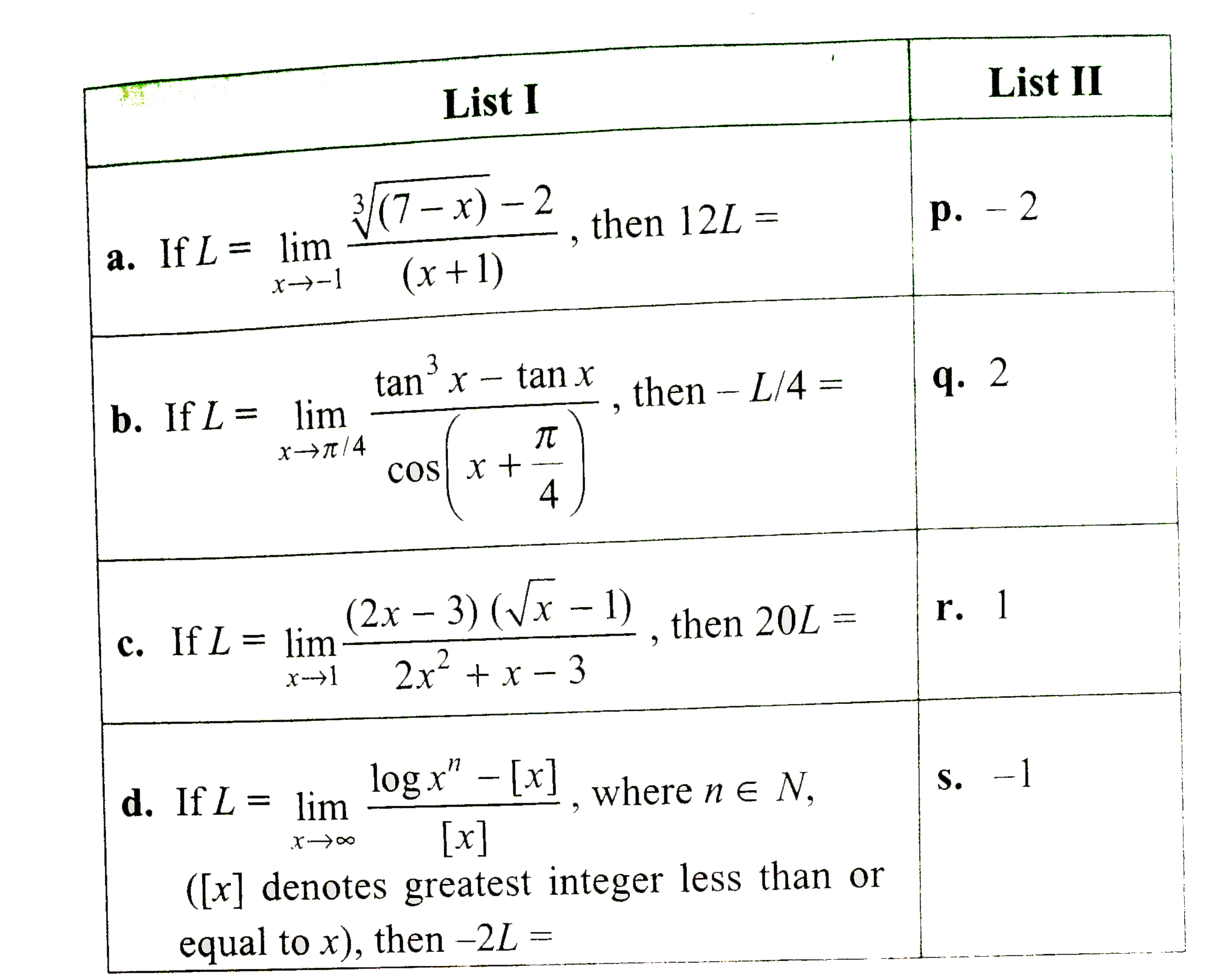If is non-zero finite, then must be equal to 4 (b) 1 (c) 2 (d) 3Solution in Bengali
The correct Answer is:B
For
Topper's Solved these Questions
- BOOK - CENGAGE PUBLICATIONCHAPTER - LIMITSEXERCISE - Linked Comprehension Type20videos
LIMITS
- BOOK - CENGAGE PUBLICATIONCHAPTER - LIMITSEXERCISE - Matrix Match Type5videos
LIMITS
- BOOK - CENGAGE PUBLICATIONCHAPTER - LIMITSEXERCISE - EXERCISE 2.88videos
LIMITS
- BOOK - CENGAGE PUBLICATIONCHAPTER - JEE 2019EXERCISE - Chapter 108videos
JEE 2019
- BOOK - CENGAGE PUBLICATIONCHAPTER - LINEAR COMBINATION OF VECTORS, DEPENDENT AND INDEPENDENT VECTORSEXERCISE - DPP 1.210videos
LINEAR COMBINATION OF VECTORS, DEPENDENT AND INDEPENDENT VECTORS
Similar Questions
Letf(x)=sin−1(1−{x})×cos−1(1−{x})√2{x}×(1−{x}), where {x} denotes the fractional part of x.
L=limx→0−f(x) is equal to03:46View SolutionMatch the following lists:
 05:19View Solution
05:19View SolutionEvaluate limx→1cosπ2x1−√x
06:03View SolutionIf y = y(x) is the solution of the differential equation, xdydx+2y=x2 satisfying y(1) = 1, then y(12) is equal to
03:56View SolutionThe number of integral values of p for which (p+1)ˆi−3ˆj+pˆk,pˆi+(p+1)ˆj−3ˆk and −3ˆi+pˆj+(p+1)ˆk are linearly dependent vectors is q
11:36View SolutionIf limx→0xn−sinxxx−sinnx is non-zero finite, then n must be equal to 4 (b) 1 (c) 2 (d) 3
02:32View SolutionThe integer ' n ' for which lim_(x->0)((cos x-1)(cos x-e^x))/(x^n) is a finite non-zero number, is a.1 b. 2 c. 3 d. 4
04:24View Solutionlim_(x rarr0)(1-cos(1-cos x))/(x^(n))=l a finite non- zero value then n=(a)1(b)2(c)3(d)4
02:31View Solutionlimx→0(2m+x)1/m−(2n+x)1/nx is equal to
04:50View Solutionlimx→0x+sinx−xcosx−tanxxnexists and is non-zero finite value then the value of n is: (a) 3 (b) 4 (c) 5 (d) 6
02:49View SolutionIf limx→0xnsinnxxn−sinnx is non-zero finite, then n equals :
10:54View SolutionIf limx→0xn−sinnxx−sinnx is nonzero and finite , then n in equal to
03:33View SolutionIf sinx+cosecx=2, then sinnx+cosecnx is equal to 2 (b) 2n (c) 2n−1 (d) 2n−2
07:27View SolutionIf limx→0xn−sinxnx−sinnx is non-zero finite, then n must be equal to (a) 4 (b) 1 (c) 2 (d) 3
02:35View SolutionIf limx→0xn−sinxnx−sinnx is non-zero finite, then n must be equal to 4 (b) 1 (c) 2 (d) 3
03:24View SolutionIf f(n)=limx→0{(1+sinx2)(1+sinx22)...(1+sinx2n)}1x then find limn→∞f(n).
04:30View Solution

